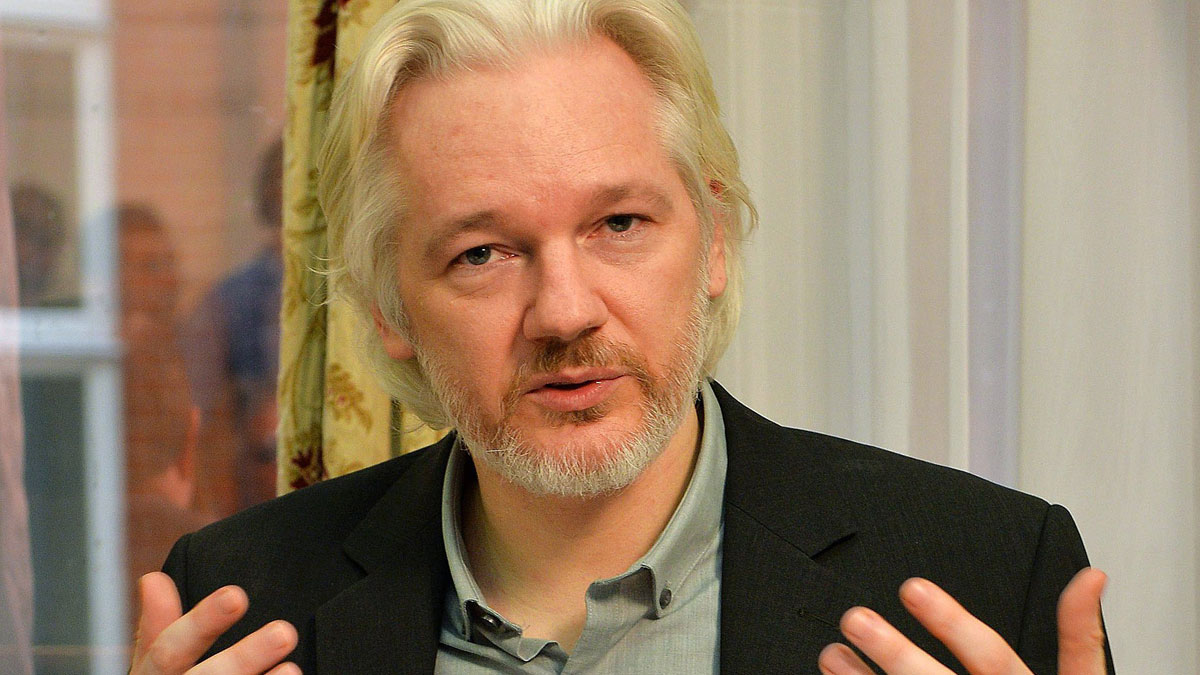US prepares charges to arrest WikiLeaks founder Julian Assange
Attorney general says taking action now a 'priority' – months after Donald Trump gave whistleblower his support

A free daily email with the biggest news stories of the day – and the best features from TheWeek.com
You are now subscribed
Your newsletter sign-up was successful
The US sees the arrest of the founder of WikiLeaks Julian Assange as a priority and is finally preparing charges after years of doubts over the viability of prosecuting.
US attorney general Jeff Sessions told a press conference yesterday he is focusing on arresting Assange, who has spent the past four years in the Ecuadorian embassy in London.
"It is a priority. We've already begun to step up our efforts and whenever a case can be made, we will seek to put some people in jail," he said.
The Week
Escape your echo chamber. Get the facts behind the news, plus analysis from multiple perspectives.

Sign up for The Week's Free Newsletters
From our morning news briefing to a weekly Good News Newsletter, get the best of The Week delivered directly to your inbox.
From our morning news briefing to a weekly Good News Newsletter, get the best of The Week delivered directly to your inbox.
WikiLeaks released hundreds of thousands of classified US documents from 2010 onwards, many relating to the Afghanistan and Iraq wars.
A large number - nearly three-quarters of a million documents - were stolen by former US Army intelligence analyst Chelsea Manning, then known as Bradley Manning, who is now serving a 35-year prison sentence.
Under Barack Obama, the US Justice Department investigated but decided it would be difficult to prosecute Assange - the First Amendment guarantees freedom of speech, compounded by the fact that several newspapers also published the documents. The investigation was put on hold.
According to CNN, prosecutors now believe they have found a way to "move forward" and bring charges.
A free daily email with the biggest news stories of the day – and the best features from TheWeek.com
The details have not been made public, but CNN reports that CIA director Mike Pompeo said that WikiLeaks had done more than receive documents and had actually "directed Chelsea Manning to intercept specific secret information".Speaking in Washington, he added: "It's time to call out WikiLeaks for what it really is: a non-state hostile intelligence service often abetted by state actors like Russia."
All this is in contrast to the attitude displayed by US President Donald Trump on the campaign trail, says The Guardian. Last October, he told a rally of supporters: "I love WikiLeaks."
WikiLeaks' release of emails hacked from Hillary Clinton last year was seen by some observers as an attempt by Assange to help get Trump elected.
Jonathan Freedland, writing in the NY Review of Books, claimed Ecuador even turned off the wi-fi in its London embassy in an attempt to stop him interfering.
He added there was speculation about why Assange would want to help the tycoon become president, with some analysts suggesting the WikiLeaks boss may have believed he would get more lenient treatment from a Trump than a Clinton administration.
Assange's lawyer Barry Pollack told CNN: "We've had no communication with the Department of Justice and they have not indicated to me that they have brought any charges against Mr Assange.
"They've been unwilling to have any discussion at all, despite our repeated requests, that they let us know what Mr Assange's status is in any pending investigations."
-
 5 calamitous cartoons about the Washington Post layoffs
5 calamitous cartoons about the Washington Post layoffsCartoons Artists take on a new chapter in journalism, democracy in darkness, and more
-
 Political cartoons for February 14
Political cartoons for February 14Cartoons Saturday's political cartoons include a Valentine's grift, Hillary on the hook, and more
-
 Tourangelle-style pork with prunes recipe
Tourangelle-style pork with prunes recipeThe Week Recommends This traditional, rustic dish is a French classic
-
 Epstein files topple law CEO, roil UK government
Epstein files topple law CEO, roil UK governmentSpeed Read Peter Mandelson, Britain’s former ambassador to the US, is caught up in the scandal
-
 Iran and US prepare to meet after skirmishes
Iran and US prepare to meet after skirmishesSpeed Read The incident comes amid heightened tensions in the Middle East
-
 Israel retrieves final hostage’s body from Gaza
Israel retrieves final hostage’s body from GazaSpeed Read The 24-year-old police officer was killed during the initial Hamas attack
-
 China’s Xi targets top general in growing purge
China’s Xi targets top general in growing purgeSpeed Read Zhang Youxia is being investigated over ‘grave violations’ of the law
-
 Panama and Canada are negotiating over a crucial copper mine
Panama and Canada are negotiating over a crucial copper mineIn the Spotlight Panama is set to make a final decision on the mine this summer
-
 Why Greenland’s natural resources are nearly impossible to mine
Why Greenland’s natural resources are nearly impossible to mineThe Explainer The country’s natural landscape makes the task extremely difficult
-
 Iran cuts internet as protests escalate
Iran cuts internet as protests escalateSpeed Reada Government buildings across the country have been set on fire
-
 US nabs ‘shadow’ tanker claimed by Russia
US nabs ‘shadow’ tanker claimed by RussiaSpeed Read The ship was one of two vessels seized by the US military